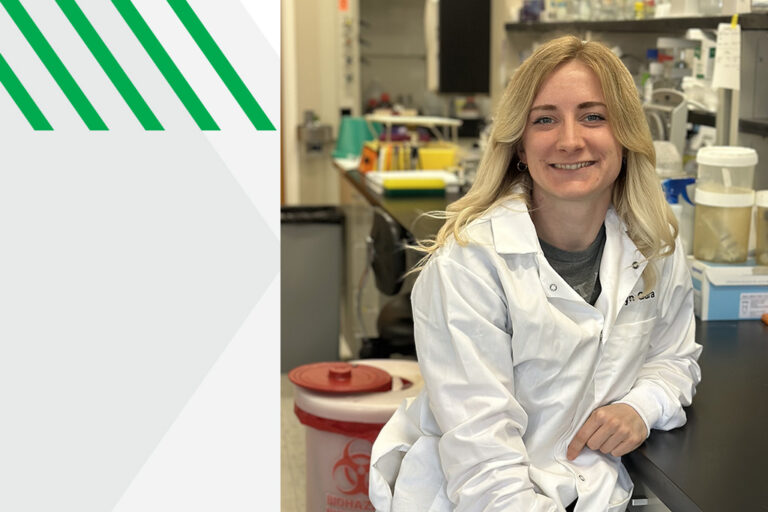UND Host-Pathogen Interactions group holds annual symposium
 The Center for Biomedical Research Excellence (CoBRE) for Host-Pathogen Interactions held its annual Host-Pathogen CoBRE Symposium at the UND School of Medicine & Health Sciences last week. The Symposium, which was open to faculty and student presenters, brought together experts investigating both microbial infectious agents and host responses to those infectious agents.
The Center for Biomedical Research Excellence (CoBRE) for Host-Pathogen Interactions held its annual Host-Pathogen CoBRE Symposium at the UND School of Medicine & Health Sciences last week. The Symposium, which was open to faculty and student presenters, brought together experts investigating both microbial infectious agents and host responses to those infectious agents.
The event’s plenary speakers were:
- John Gallin, the National Institutes of Health, who gave a presentation titled “Lessons from Chronic Granulomatous Disease: Search for a NOX-2 Inhibitor to Treat Inflammation,” and
- Jenny Ting, University of North Carolina, who spoke on “Innate immune receptors: Roles in inflammation, cancer and the microbiota.”
Investigators from the University of North Dakota also presented research related to infection and immunity through both oral and poster sessions. Postdoctoral fellows, graduate students and SMHS faculty all presented on topics as varied as cancer, the pathology of Lyme disease, treatments for sepsis and the effect of probiotics on Alzheimer’s disease.
“Over the past four years, this annual symposium has served as a unique networking and science exchange platform for investigators within and around UND by bringing together leading national and international experts,” said Jyotika Sharma, Ph.D., associate professor in the SMHS Department of Biomedical Sciences. “Continuing this tradition of providing a stimulating atmosphere for researchers of different backgrounds, this year’s program too produced exciting discussion of interdisciplinary concepts in the areas of host-microbial interactions.”
This event aims to promote interaction and collaboration among researchers in the area and provide opportunities for learning about cutting-edge tools, approaches and resources to advance their research in the areas of infection and inflammation.
“Understanding more fully how microbes attack the body and how the body defends against that invasion is very important, especially as the threat from more resistant and adaptive organisms increases,” said UND’s Interim President Joshua Wynne, M.D., M.B.A., M.P.H. “The emergence of challenges like that associated with the Ebola outbreak highlights the importance of this type of research.”
“This was an outstanding meeting,” added Marc Basson, M.D., Ph.D., M.B.A., senior associate dean for medicine and research at the SMHS. “Investigators were infectious, so to speak, in their enthusiasm and inspiring in their creativity. The collaborations among various UND faculty and the resourcefulness that our investigators displayed are exactly the sort of thing that the CoBRE grant is meant to foster.”



